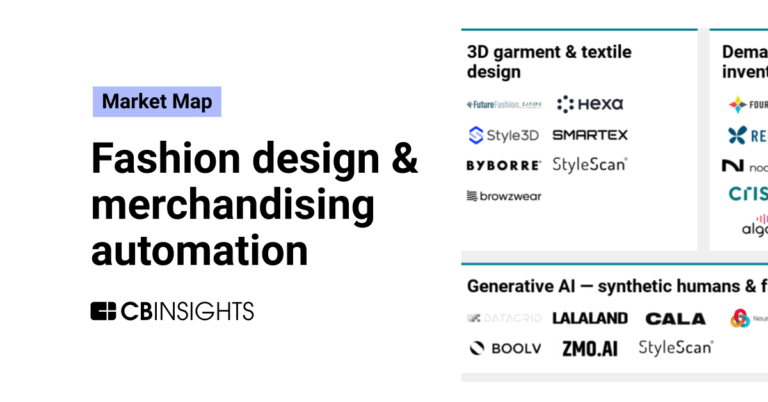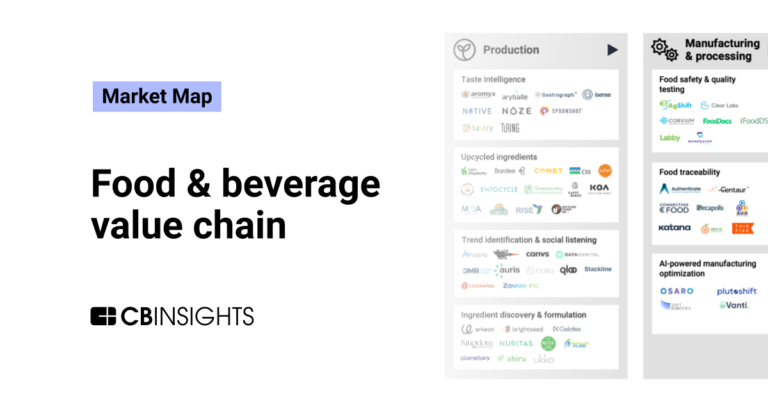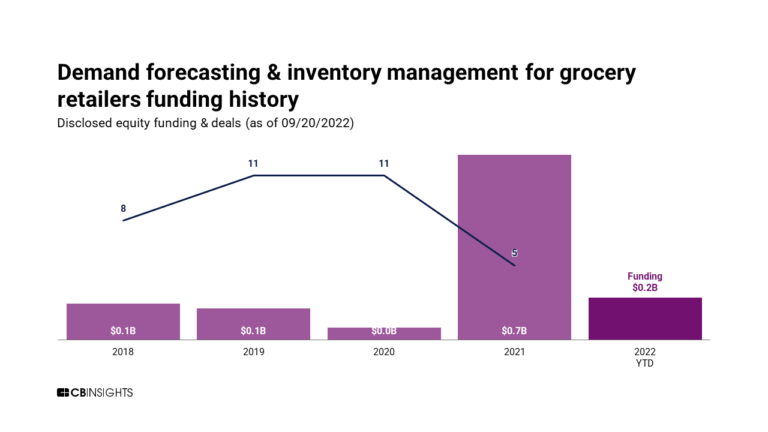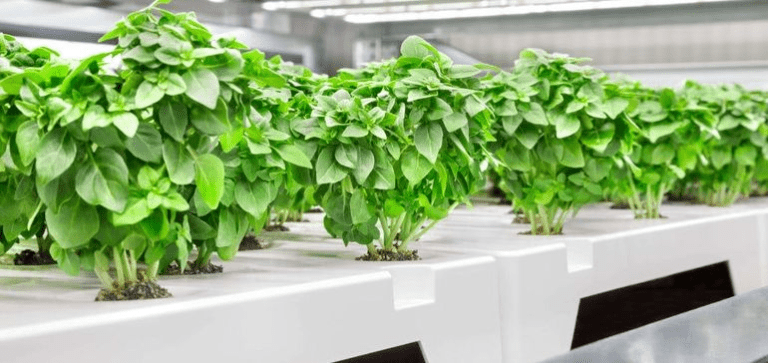
Shelf Engine
Founded Year
2015Stage
Series B | AliveTotal Raised
$58.22MLast Raised
$41M | 4 yrs agoMosaic Score The Mosaic Score is an algorithm that measures the overall financial health and market potential of private companies.
+47 points in the past 30 days
About Shelf Engine
Shelf Engine develops an automated prediction platform. It uses machine learning to help grocery stores generate orders of perishables for retail stores to eliminate food waste. It facilitates automated ordering, forecasting, and reporting. It serves grocery and food retailers. It was formerly known as Shelfbot. It was founded in 2015 and is based in Seattle, Washington.
Loading...
Shelf Engine's Product Videos
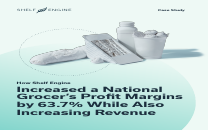
_thumbnail.png?w=3840)
Shelf Engine's Products & Differentiators
Shelf Engine
Shelf Engine forecasts and orders highly perishable foods for grocers at scale. Using AI, Shelf Engine’s platform predicts consumer demand with high precision and automates ordering for every SKU, every day, in every store. Shelf Engine simplifies grocery operations by automating the purchase orders sent to suppliers and distributors, paying them directly for the products they deliver, and only charging retailers for what they sell. Shelf Engine’s performance-based model reduces labor requirements, eliminates inventory risk, and guarantees profit expansion from day one.
Loading...
Research containing Shelf Engine
Get data-driven expert analysis from the CB Insights Intelligence Unit.
CB Insights Intelligence Analysts have mentioned Shelf Engine in 7 CB Insights research briefs, most recently on Aug 21, 2023.

Expert Collections containing Shelf Engine
Expert Collections are analyst-curated lists that highlight the companies you need to know in the most important technology spaces.
Shelf Engine is included in 8 Expert Collections, including Store tech (In-store retail tech).
Store tech (In-store retail tech)
1,892 items
Companies that make tech solutions to enable brick-and-mortar retail store operations.
Supply Chain & Logistics Tech
5,203 items
Companies offering technology-driven solutions that serve the supply chain & logistics space (e.g. shipping, inventory mgmt, last mile, trucking).
Grocery Retail Tech
831 items
Startups providing B2B solutions to grocery businesses to improve their store and omni-channel performance. Includes customer analytics platforms, in-store robots, predictive inventory management systems, online enablement for grocers and consumables retailers, and more.
Food Waste
352 items
Startups that help tackle food waste along the food value chain. Includes solutions that help resell or repurpose food waste.
Conference Exhibitors
5,302 items
Retail Tech 100
200 items
The most promising B2B tech startups transforming the retail industry.
Latest Shelf Engine News
Oct 30, 2024
March 18, 2021 To put it lightly, 2020 was a momentous year for the grocery industry. As we stated in our post detailing our Instacart investment: “the coronavirus pandemic thrust the grocery industry into a digital acceleration that has, in our estimation, pulled forward the penetration curve for online grocery by about five years and set it on a trajectory to drive high growth for the coming decade.” The impact on the customer experience of the dramatic transition to digital was obvious as purchasing behavior moved from store shelves to a mobile app. What may be less obvious is what the shift meant for grocery retailers and their supply chain partners. The grocery industry operates a supply chain that has been optimized over decades to reduce cost and move goods to consumers quickly. However, cost and speed have come at the expense of enormous amounts of waste. Inability to forecast consumer demand coupled with lack of flexibility to react to changes in demand means that upwards of 40% (!) of perishable goods go to waste at retail. And as with all large, complex systems, introducing innovation to improve this has only become more difficult as systems have built the habit of operating with antiquated ordering flows and human-driven decision making. The pandemic exacerbated this. As Shelf Engine CEO Stefan Kalb noted: “While grocery sales were up, grocers have had to contend with panic shopping, rollercoaster sales, supply chain disruptions, safety protocols and ever-changing state-based mandates.” Now with line of sight to the other side of the pandemic, the industry is contending with changed consumer behavior and an ever-evolving supply chain. Quite possibly, this is the riskiest time to be a grocery operator in half a century. Which is why so many of them are now finally turning to technology to help reduce the uncertainty. Modern data collection and processing techniques combined with advancements in machine learning have already begun to transform large industries like advertising, finance, insurance, and even trucking logistics. The time has come for the $800 billion US grocery market. Shelf Engine aims to be the end-to-end ordering solution for grocers. Founder Stefan Kalb experienced a problem early on in his career as an operator of a fast-casual salad chain in the Seattle area. Similar to problems experienced in grocery retail, short shelf life and unpredictable consumer demand led to large amounts of food waste and unpredictable profits. Stefan befriended Bede Jordan, a long-time Microsoft software engineer, in 2012 and they began brainstorming, culminating in starting Shelf Engine together in 2016. Today, after a number of years navigating the intricate maze of large grocery retailers, Shelf Engine operates an elegant, scaled solution for a complex problem. Capitalizing on the industry standard of the scan-based trade model – where vendors take on the inventory risk on behalf of retailers, a commonplace in the CPG world – and applying it to the perishable category, Shelf has aligned their profitability with reducing food waste for retailers. This is a dramatically large – yet under-reported – problem in the industry with estimates for spoilage ranging from 20-40% of perishable foods in grocery. Many grocers have committed to a reduction in waste , but initiatives across the industry remain early and unproven. Using volumes of data and sophisticated modeling to predict customer demand combined with automating the purchase of perishable products, Shelf Engine has hit the trifecta of benefitting grocery retailers, consumers, and the environment. The grocer no longer has to worry about volatile gross profits and dealing with food shrinkage, trading this risk for ensured profitability of perishable categories. The consumer benefits from a better, predicted experience. And society benefits from a more efficient food supply chain that can more accurately allocate resources to solve waste and shortage issues. Over the next decade, General Catalyst firmly believes the grocery supply chain will dramatically re-organize to efficiently meet changing consumer tastes and demand, but what that looks like remains unpredictable. International markets, which have a head start on the US in the development of this trend, increasingly show a pathway forward of flexible logistics networks, distributed warehouses, and deep integration of data into decision-making. We are confident that Shelf Engine will provide the potential energy for moving a notoriously low-margin, capital-constrained industry forward toward a brighter future that benefits all stakeholders.
Shelf Engine Frequently Asked Questions (FAQ)
When was Shelf Engine founded?
Shelf Engine was founded in 2015.
Where is Shelf Engine's headquarters?
Shelf Engine's headquarters is located at 1100 2nd Avenue, Seattle.
What is Shelf Engine's latest funding round?
Shelf Engine's latest funding round is Series B.
How much did Shelf Engine raise?
Shelf Engine raised a total of $58.22M.
Who are the investors of Shelf Engine?
Investors of Shelf Engine include Initialized Capital, Foundation Capital, Notable Capital, Correlation Ventures, Founders' Co-op and 14 more.
Who are Shelf Engine's competitors?
Competitors of Shelf Engine include foodforecast, Smartway, Fountain9, Invafresh, Winnow and 7 more.
What products does Shelf Engine offer?
Shelf Engine's products include Shelf Engine.
Who are Shelf Engine's customers?
Customers of Shelf Engine include Harding's Markets.
Loading...
Compare Shelf Engine to Competitors

Afresh is a technology company focused on optimizing the fresh food supply chain within the grocery retail sector. The company offers AI-powered solutions for ordering, forecasting, and store operations to improve efficiency, reduce food waste, and enhance profitability. Afresh primarily serves the grocery retail industry, providing technology to manage perishable inventory and make data-driven decisions for fresh food departments. It was founded in 2017 and is based in Oakland, California.

RELEX is a company that focuses on supply chain and retail planning in the retail and consumer goods industry. The company offers a unified platform that helps retailers and consumer brands optimize their planning across demand, merchandise, supply chain, and operations, aiming to maximize customer satisfaction and minimize operational costs. RELEX primarily sells to the retail industry and consumer goods companies. RELEX was formerly known as RELEX Solutions. It was founded in 2005 and is based in Helsinki, Finland.

AIPERIA specializes in revolutionizing the fresh food industry with artificial intelligence (AI) based planning solutions. The company offers a software platform that provides automated planning from food production to the end consumer, ensuring efficient and sustainable supply chain optimization. Its technology enables precise demand forecasting and order suggestions, which helps businesses avoid early sell-outs and maximize sales potential. It was formerly known as BäckerAI and PlanerAI. It was founded in 2021 and is based in Baden-Wurttemberg, Germany.
Nuvilab specializes in data management solutions for the food service industry, focusing on tracking and managing various aspects of food consumption and waste. The company offers artificial intelligence-powered tools for real-time tracking of patient meals, flight catering, school meals, and food inventory. Its solutions cater to healthcare facilities, educational institutions, and other organizations seeking to optimize their food service operations. The company was founded in 2018 and is based in Seoul, South Korea.
Wasteless is a company specializing in AI-driven dynamic pricing for the grocery retail sector. Their main service is a pricing engine that optimizes markdowns and reduces food waste by adjusting prices in real-time based on product expiration dates. The company primarily serves the grocery retail industry, helping supermarkets and food suppliers to increase profitability and sustainability. It was founded in 2017 and is based in Tel Aviv, Israel.
Alloy is a technology company that focuses on providing actionable demand and inventory insights for consumer brands. The company offers a data platform that integrates point-of-sale, inventory, and supply chain data, providing real-time visibility into consumer demand and inventory for brands. Alloy primarily serves the consumer goods industry. It was founded in 2012 and is based in San Francisco, California.
Loading...
